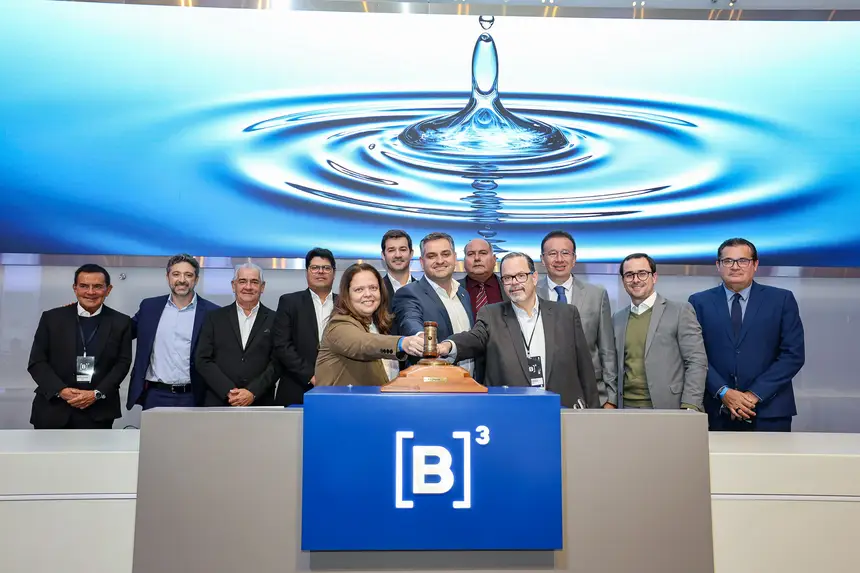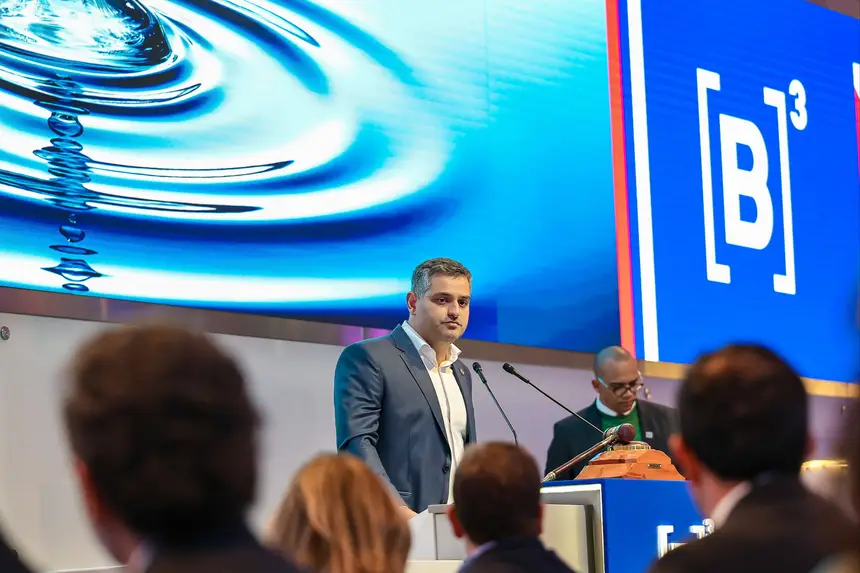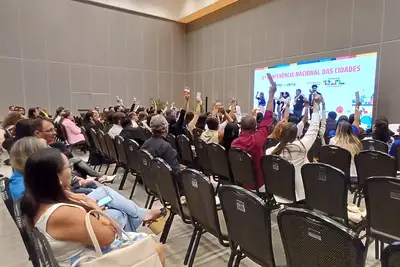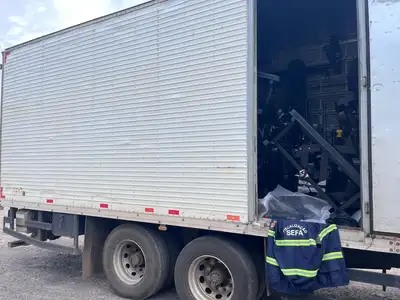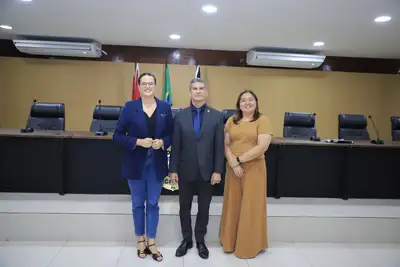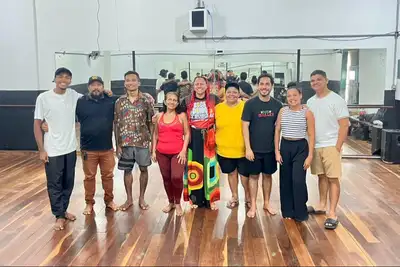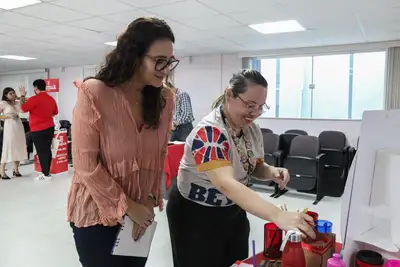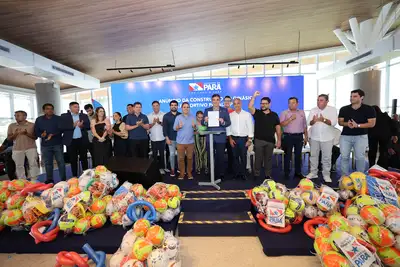Government of Pará expands sanitation concession and guarantees investments in Southwest and Lower Amazon
Public session defines Aegea Saneamento as responsible for services in 27 municipalities, benefiting about 800 thousand people in the regions
The Government of Pará finalized, this Tuesday (5), the concession of Block C of the regionalization of water and sewage services, in a public session held at B3, in São Paulo. Aegea Saneamento won the block that includes 27 municipalities in the Southwest and Lower Amazon regions, including Santarém and Altamira. The initiative will benefit approximately 800 thousand people.
With no competitors in the bidding, the company won the auction with a value of R$ 400.6 million and a forecast of investments of R$ 3.6 billion. Under the contract, the concessionaire must universalize the supply of treated water by 2033 and the collection and treatment of sewage by 2039, in accordance with the New Legal Framework for Sanitation (Law 14.026/2020).
Block C had not received any interested parties in the public session held in April of this year. To facilitate the process and attract investors, the State Government, with the support of the National Bank for Economic and Social Development (BNDES), revised the concession model, maintaining the minimum grant value but extending the payment term from 3 to 20 years.
The superintendent of Projects at BNDES, Luciene Machado, highlighted the importance of the new modeling in sanitation management. “This is a legacy solution, built with the Government of Pará to permanently improve water and sewage services in 126 municipalities. The auction of Block C represents the beginning of the concrete transformation of the sanitary reality of the State.”
The Attorney General of the State of Pará, Ricardo Sefer, emphasized that the new model adopted by the Government of Pará for basic sanitation seeks to address one of the state's greatest structural challenges: to expand access to quality water and sewage services with efficiency and social reach.
“Expanding sanitation in Pará is a challenge of great proportions — operational, financial, social, and environmental. The people of Pará chose to follow a new model, based on partnerships with the private sector, with the firm purpose of ensuring the best possible service, combined with social and environmental responsibility. All this while respecting tariff moderation, so that the service is qualified and, at the same time, accessible and compatible with the Amazonian reality,” he said.
Cosanpa - The Pará Sanitation Company (Cosanpa) will continue as a public company, responsible for the production of water that supplies more than 2 million people in Belém, Ananindeua, and Marituba, from the Bolonha Complex and underground wells. The distribution, collection, and treatment of sewage in the granted areas will be the responsibility of the private sector.
“This new model, which integrates efforts from the public and private sectors, strengthens the State's capacity to ensure a more efficient, safe service focused on universalization. We are facing a historic advance for sanitation in Pará, with Cosanpa maintaining its prominence and commitment to the population,” said José Fernando Gomes Júnior, president of Cosanpa.
Social tariff - One of the differentiators of the new sanitation model adopted by the Government of Pará is the implementation of the Social Tariff, which will guarantee a 50% discount on the water bill for low-income families with a monthly consumption of up to 15 thousand liters.
Approximately 1.6 million people will be eligible for the benefit, which also includes a subsidy on the costs of connecting water meters to the domestic network, expanding access to the service equitably.
The percentage of consumers covered by the tariff is the highest among all sanitation concession projects ever carried out in Brazil, reinforcing the State's commitment to adapting public policies to the socioeconomic reality of the people of Pará, especially in more vulnerable regions.
Towards universalization - In April, the Government of Pará had already granted three regional blocks, which together encompass 99 municipalities, all won by Aegea. With the result of the Block C bidding, the group will now operate in 126 municipalities in Pará from the 4 granted blocks, with a total investment exceeding R$ 20 billion and benefiting 5.3 million people throughout the State.
The goal is to universalize access to treated water by 2033 in all blocks, as well as the collection and treatment of sewage by 2039 in blocks B, C, and D, and by 2033 in block A, according to the new Legal Framework for Sanitation (Law 14.026/2020).
Águas do Pará, a subsidiary of Aegea in the State, has already begun structural interventions. One example is Vila da Barca, in Belém, the first community to receive direct investments under the new management model. Works are underway to implement a new water supply system, with delivery scheduled for October of this year, in addition to the construction of sewage infrastructure, which should be completed within eight months. The improvements will directly benefit families living in homes and stilt houses in the region.
“It is a satisfaction to expand our operations in Pará with a challenging and essential project like the advancement of sanitation. We have already initiated emblematic investments in the State, such as in the Vila da Barca community, and now we are reaching 27 more municipalities, with Altamira and Santarém as hubs. We reinforce our commitment to sanitary and social inclusion throughout the Pará territory,” emphasized Aegea's vice president, Renato Médicis.



